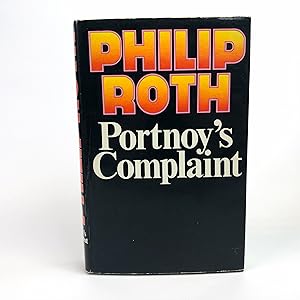
He told Cowley the books had been photocopied and stapled together in the Students for a Democratic Society (SDS) headquarters in Carlton. Then in 2020, another copy turned up: this time handed over to the SLV by a donor who was involved in its production. It was being handed around by various people – of course I read it! I enjoyed Roth, but especially because it was banned, you know? So she gave it to me and I put it on the shelf and didn’t think much of it,” says Richards, a former solicitor. “I remember Mietta rocking up with this book and being worried that she shouldn’t have it, as it was illegal. It was being handed around by various people – of course I read it! I enjoyed Roth, but especially because it was banned Andrew Richards In 1970, when she was 20, O’Donnell handed her copy to Richards she didn’t want to be caught with it as she was working as a staffer for a federal MP at the time. Richards’ copy had come to him via an old friend: Mietta O’Donnell, the late, well-known Melbourne restaurateur.

“We’re not talking printers and binders, we’re literally talking about people secretly working to print hundreds of copies of a banned book, which would have been completely illegal.”

And it lived up to my expectations, in that it was so clearly handmade,” Cowley says. “As soon as I saw it, I knew this was clearly the book I had long heard about. Cowley had heard rumours of it, but had never seen a copy until 2018 when a regular donor, Andrew Richards, revealed to Cowley that he had one. Photograph: Sian Cainīut in early 1970, during the ban, a few hundred copies of a samizdat edition of Portnoy’s Complaint were secretly printed in Melbourne.

‘300 copies were made completely by hand – then clearly read and read to death’: the cover with Roth’s name misspelled. “Readers would have felt affronted that they could not read his book in Australia.” “The case really did challenge Australia’s censorship laws because this wasn’t some pulp book this was a novel by a well-known American literary author who won awards,” says Des Cowley, principal librarian at SLV and co-curator of the World of the Book 2022 exhibition, in which the bootleg Roth is now displayed. The publisher, Penguin, attempted to circumvent the ban by printing 75,000 copies locally in 1970, before facing down legal battles across the country.Īfter more than a year of prosecutions of defiant booksellers and publishers, and two trials in New South Wales that both ended with hung juries, the censorship of Portnoy’s Complaint was finally lifted in June 1971, marking the end of book bans in Australia. Portnoy’s story in Australia is well told: the novel was published in 1969 to great fanfare overseas, but it was deemed obscene and imports were banned at the border by John Gorton’s government.


 0 kommentar(er)
0 kommentar(er)
